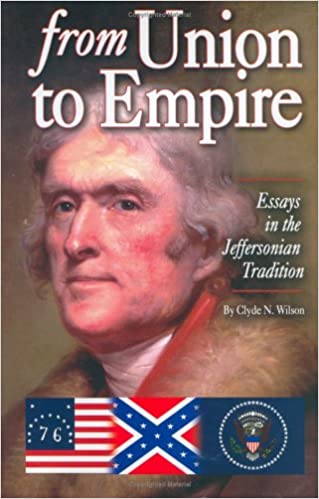
This is a great thread of, to my knowledge, one of the better single volume US economic histories. This issue of the development of "Sunbelt" and south's post-war economic and political modernization is an important body of literature that many probably aren't aware of.
https://twitter.com/thermofortress/status/1380956071653687300
A number of good books, but Schulman’s “From Cotton-Belt to Sunbelt” is the best. What initially spurred this was Roosevelt's insistence on “modernizing” the south, referring to it in 1938 as Americas “economic problem no.1”. The primary way the federal govt accomplished this 



was by awarding disproportionate number of military contracts to southern states which spurred development of heavier industry as well as growth of white-collar jobs related to science, engineering, technology,etc.
However,the big economic growth for the sunbelt came later in the 60’sand 70’s when many industries and businesses based in northeastern/Midwestern cities started to move into the sunbelt (they would eventually ditch the sunbelt as well for better conditions even further south
of the border). Even though the south was loyal to democratic party, the new deal, and other reform movements, serious labor movements, unionization, state oversight/regulation of business, as well as progressive taxation never took off in the south
like it did in northeast and Midwest. This was the ultimate reason for the movement of many industries and businesses to the south/sunbelt and was ultimately a huge part of the undoing of what was the shortly lived American social democratic experiment .
All the way back in 30’s and 40’s, both conservative and radical labor/trade unions foresaw this. They had won so many battles for unionization with the Wagner Act and the help of Roosevelt admin in general. However, if they couldn’t standardize unionization across the country,
then nothing would stop industries from simply moving to another part of the country for more favorable conditions. Taft-Hartley sealed the deal for the anti-union status quo in south, however, the CIO did attempt a massive drive to unionize the south before Taft Hartley passed
in late 40’s, a campaign known as “Operation Dixie” which was, for the most part a failure, (there is some interesting lit on this, two professors - a husband and wife from WVU who I knew quite well because that was my neck of the woods - wrote a book on this). 

If you are looking for something that focuses on defense/military spending in south and how it transformed the region, Kari Frederickson wrote a short monograph on these developments in South Carolina. This book in particular demonstrates better than most other works 

how this economic modernization transformed southern politics and gave birth to republican party in south and the partisan political realignment that occurred because of it. She shows how these defense/military contracts were important in employment of new educated white-collar
class in south, leading to growth of colleges, but also of suburbs. From there she basically takes Matthew Lassiter's thesis and applies it to her case study of suburban South Carolina, how beginning in the early 1950’s there was already a noticeable turn towards GOP specifically
among these educated suburbanized southerners. For those who are not familiar, Lassiter wrote two books studying the rise of “conservative” GOP politics in parts of suburban NC and VA. Many journalists and political scientists attempting to explain partisan realignment and 

growth of GOP in the south relied on backlash against civil/voting rights acts and racism to explain this shift. As far as they were concerned, the south was filled with poor or working class “Wallace voters” whose abandonment of democratic party was based on Dems newfound
commitment to civil rights. There are a number of issues with this, But Lassiters primary intervention was demonstrating how some of the earliest support for GOP and even support for conservative causes were more prevalent in the newly built suburbs of the south.
This is an important distinction and argument that cleared up a lot of the questions I had about the evolution of southern politics. Both populist and conservative strains of politics within the south prior to WWII were significantly different from the modern republican party,
that it sorts of seems like it springs out of nowhere. There is no serious relationship between southern populism or conservatism and anything that comes out of GOP and Con Inc. This new suburban middle-class GOP was important in creating modern rhetoric of GOP. It opposed busing
desegregation and many other experiments in social engineering, but not on racialist or racist grounds. It opposed these things with arguments deferring to meritocracy and privilege afforded to suburbanites based off wealth (my children shouldn’t go to school with black children
not because they are black, but because they are poor). Coming from a way of thinking that is historically right-wing, I think most reading this can figure out how this developed into the brain dead rootless bougie GOP that we live with today.
• • •
Missing some Tweet in this thread? You can try to
force a refresh











